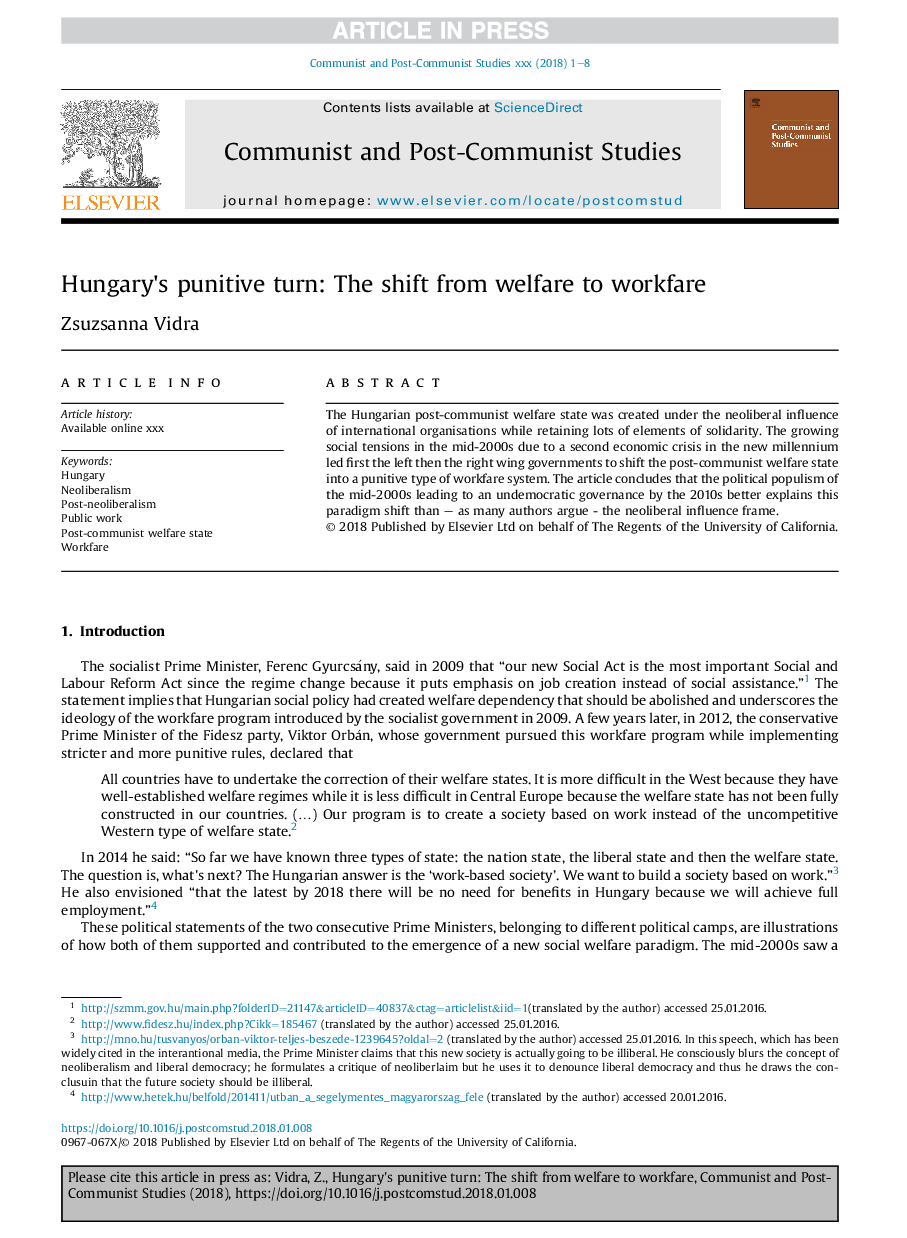| Article ID | Journal | Published Year | Pages | File Type |
|---|---|---|---|---|
| 7453418 | Communist and Post-Communist Studies | 2018 | 8 Pages |
Abstract
The Hungarian post-communist welfare state was created under the neoliberal influence of international organisations while retaining lots of elements of solidarity. The growing social tensions in the mid-2000s due to a second economic crisis in the new millennium led first the left then the right wing governments to shift the post-communist welfare state into a punitive type of workfare system. The article concludes that the political populism of the mid-2000s leading to an undemocratic governance by the 2010s better explains this paradigm shift than - as many authors argue - the neoliberal influence frame.
Related Topics
Social Sciences and Humanities
Social Sciences
Development
Authors
Zsuzsanna Vidra,
